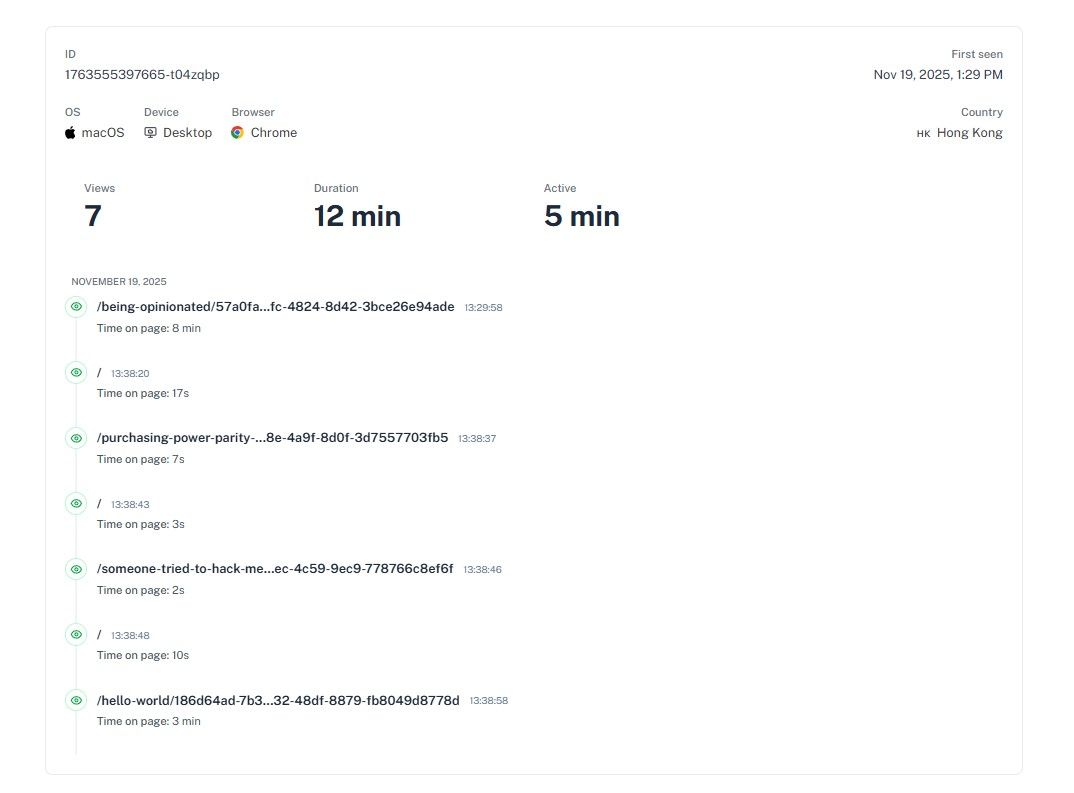Sessions
Session tracking allows you to monitor and analyze individual visitor sessions on your website, providing rich insights into user behavior, navigation paths, and engagement patterns at a granular level.
Overview
Session tracking automatically captures detailed information about each visitor session on your website. For each session, we records:
- Unique session identifier
- Geographic location (country)
- Device type and operating system
- Browser information
- Session duration and active time
- Pages visited and time spent on each page
- Referral sources
This data helps you understand individual user journeys.
How It Works
Session tracking is enabled by default. The session tracker:
- Assigns a unique identifier to each new visitor session
- Tracks user interactions throughout their visit
- Compiles detailed session information
- Makes this data accessible through your Analytics dashboard
The session ID cannot be linked to any individual person - no IP addresses, emails, or other identifying information is stored.
Dashboard Visualization
![]()
Session data appears in the Sessions tab of your Analytics dashboard, where you can:
- View a list of all recent sessions
- Click on individual sessions for detailed inspection
This overview helps you identify patterns in your website traffic and spot unusual sessions that might warrant further investigation.
Detailed Session Inspection

One of the most powerful features is the ability to inspect individual sessions in detail. By clicking on any session in the list view, you can access the full session timeline, including:
- Page visits with timestamps
- Time spent on each page
- Navigation paths between pages
- Referral sources for the session
Privacy Considerations
While session tracking provides detailed behavioral data, the module is designed with privacy in mind:
- No personal identifying information is collected
- Session IDs are randomly generated and not linked to individual users
- IP addresses are not stored
- Compliance with GDPR, CCPA, and other privacy regulations